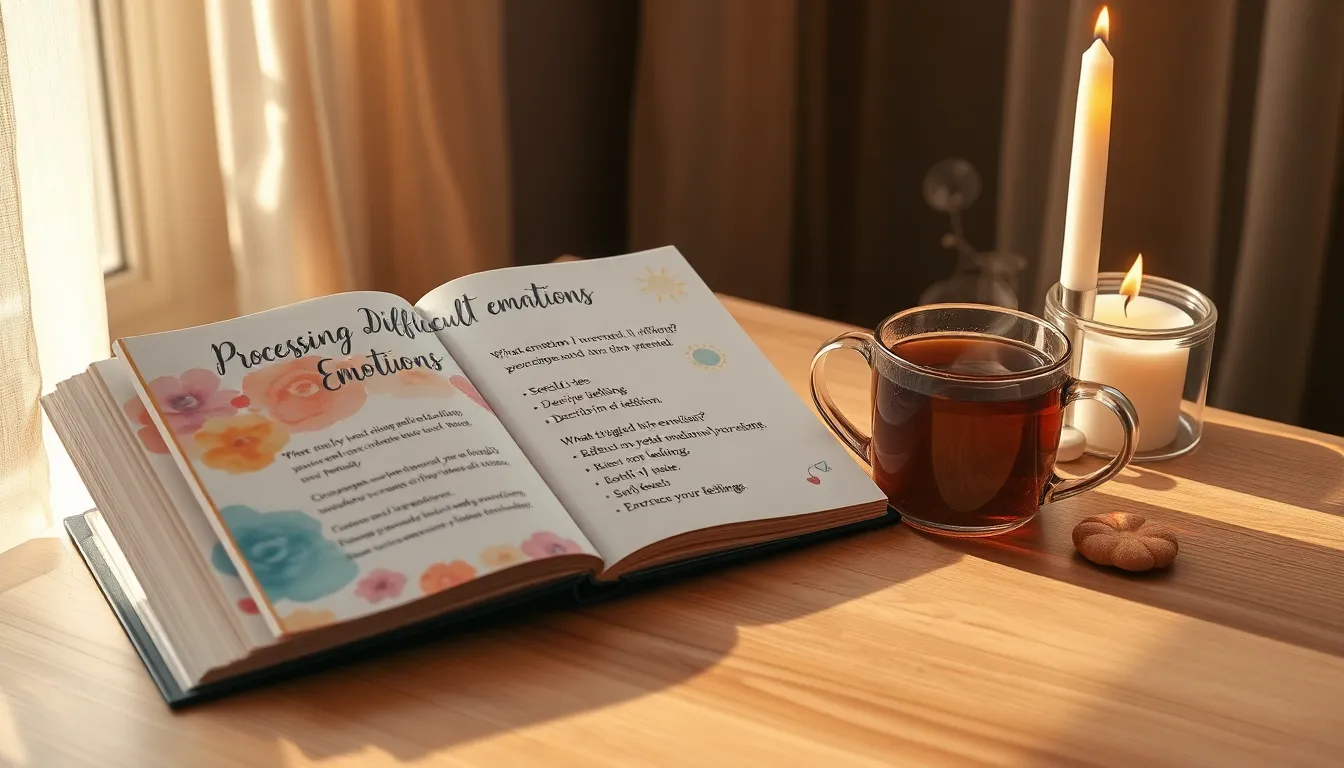Navigating the storm of difficult emotions can feel overwhelming, but journaling offers a gentle anchor. This practice allows us to untangle thoughts, fostering clarity and emotional relief.
In this article, discover how journaling can become your personal haven, offering insights and peace. Embrace this simple tool to transform turmoil into tranquility.
Identify Your Emotions Clearly

Start by labeling your emotions with precision. Use prompts like: “What am I truly feeling right now?” or “What specific event triggered this feeling?” This clarity helps in understanding and managing emotions.
Next, reflect on the intensity. Rate your emotion on a scale of 1-10. Ask, “How strong is this emotion?” or “What can I do to feel a bit better?” This practice nurtures emotional awareness and aids in emotional regulation.
Set Up a Calm Space

Transform your space into a tranquil haven. Choose a quiet corner, add soft lighting, and include comforting items like a cozy blanket or favorite scent. This nurturing environment supports emotional exploration.
Begin with calming prompts to ease into reflection. Try: “What am I grateful for today?” or “What small joy did I experience?” These encourage a gentle start to processing emotions.
Write Without Self-Censorship

Embrace authentic expression by writing without judgment. Let your thoughts flow freely without worrying about grammar or structure. This liberates your emotions and reveals hidden insights.
Try these prompts:
- “What am I feeling right now?”
- “What do I need to release today?”
Use them to uncover and understand your emotions deeply.
Reflect on Your Entries

After writing, take a moment to reflect on your entries. Notice any patterns or emotions that frequently arise. This awareness can foster deeper understanding and healing.
Try these prompts:
- What surprised me about my feelings today?
- How can I nurture myself through these emotions?
These questions encourage insightful reflection and growth.
Conclude with Positive Affirmations

Concluding with positive affirmations nurtures self-compassion. Choose affirmations that resonate with your current feelings. Examples: “I am resilient” or “I am worthy of love.”
Write these affirmations at the end of your journaling session to instill a sense of hope.
- Focus on what you truly believe or aspire to believe.
- Repeat them aloud or silently, reinforcing your emotional resilience.
Conclusion: Creating Beautiful Outdoor Spaces
In exploring how journaling can help process difficult emotions within relationships, we’ve uncovered five key concepts: self-reflection, emotional clarity, empathy development, conflict resolution, and personal growth. Journaling allows us to step back and reflect on our feelings, gain clarity and understanding, foster empathy towards our partners, navigate conflicts with a clearer mindset, and ultimately, grow both individually and as a couple.
As an immediate step, consider setting aside just 10 minutes daily to journal about your thoughts and feelings concerning your relationship. This small investment of time can yield significant benefits, enhancing communication and emotional connection with your partner.
Remember, every relationship has its challenges, but with tools like journaling, you are well-equipped to handle them with grace and understanding. To continue benefiting from these insights, save or bookmark this article for future reference—it can serve as a handy guide whenever you face emotional hurdles.
Looking ahead, by nurturing these habits and honing your emotional intelligence, you pave the way for a successful and fulfilling relationship. Embrace the journey of growth together, and let your shared experiences strengthen your bond with each passing day.


